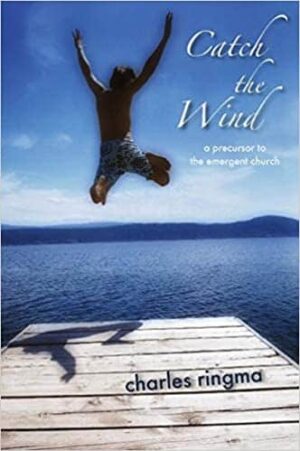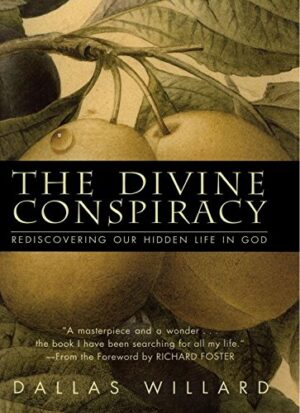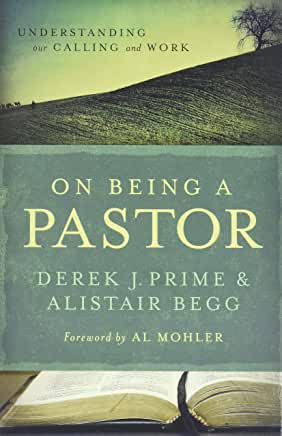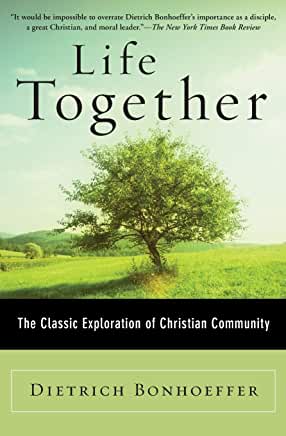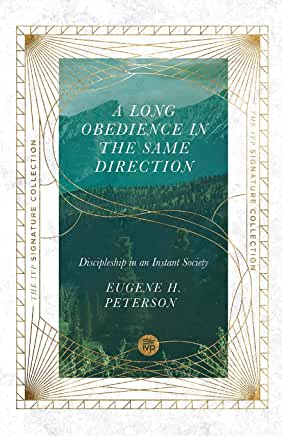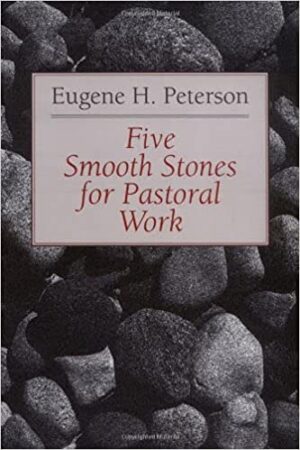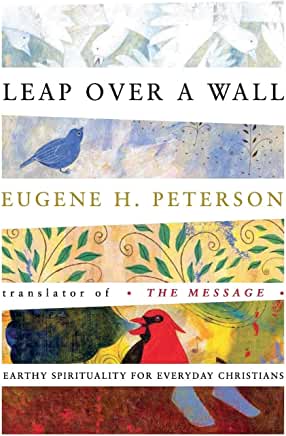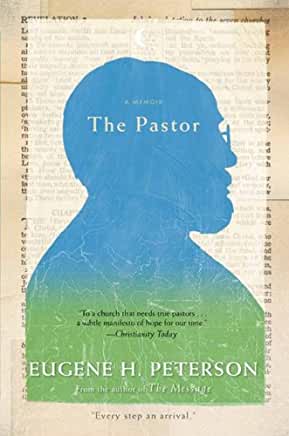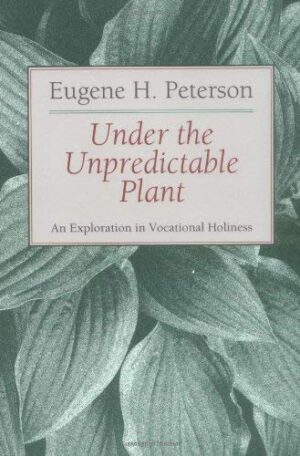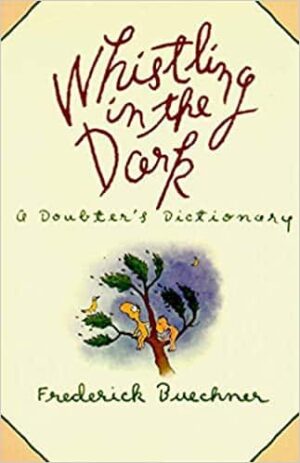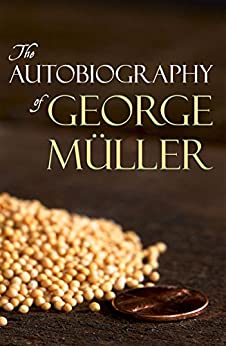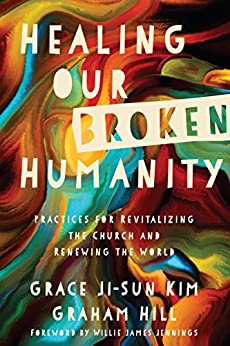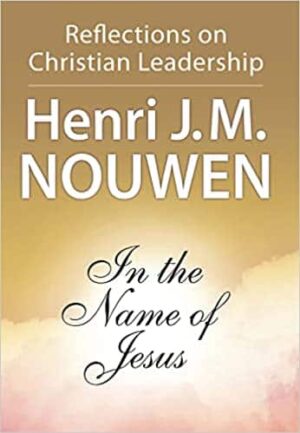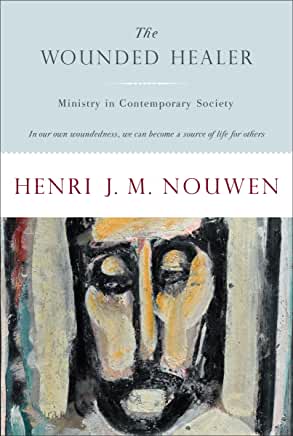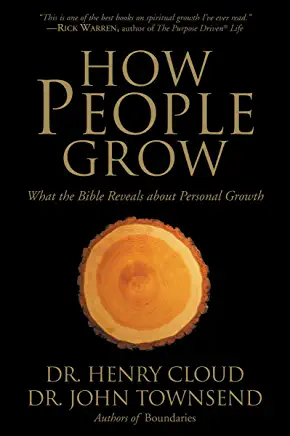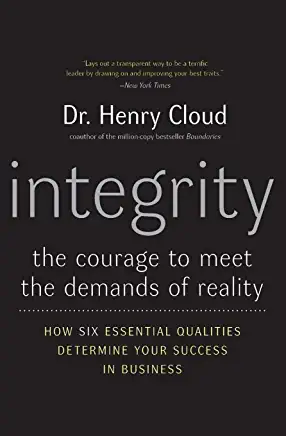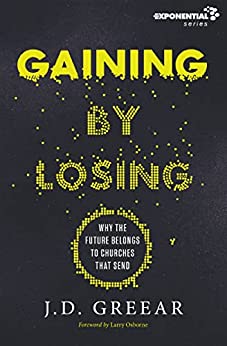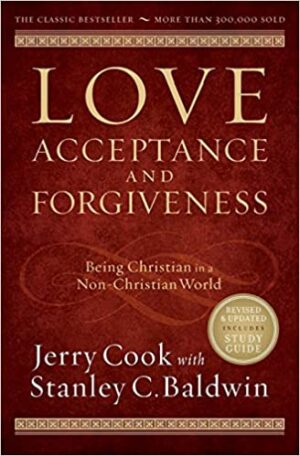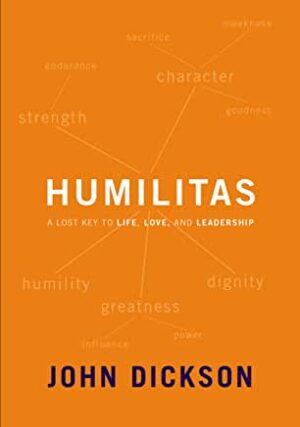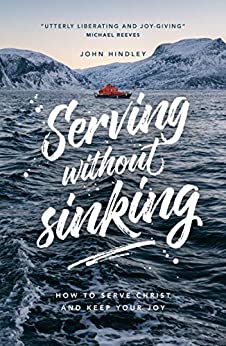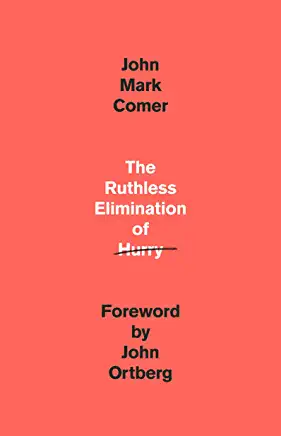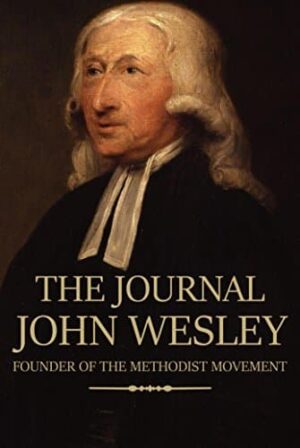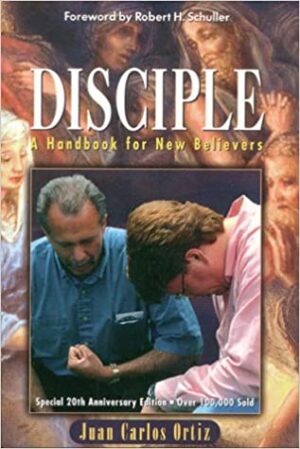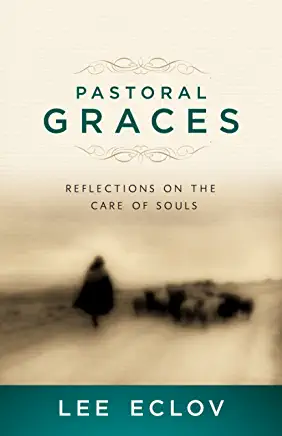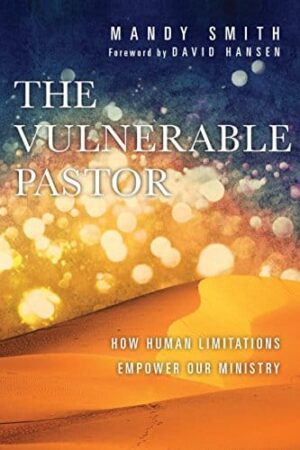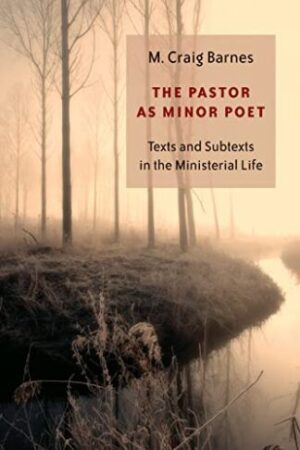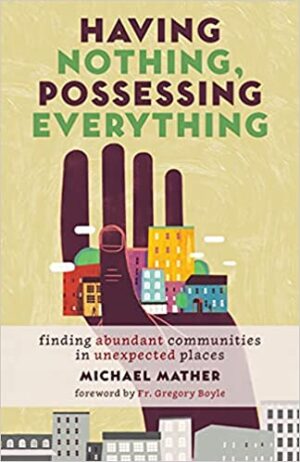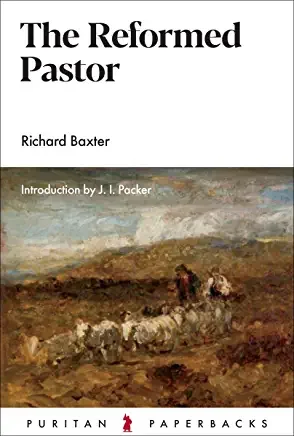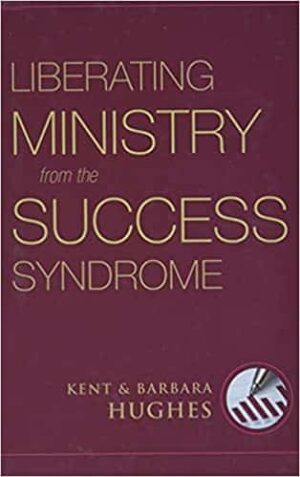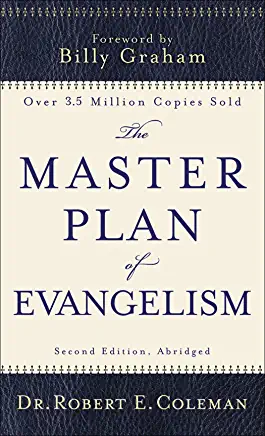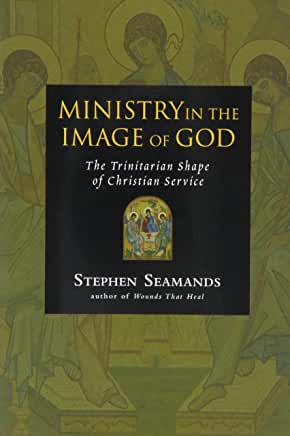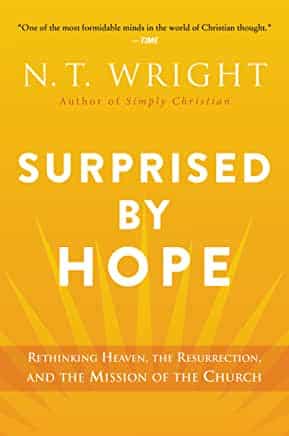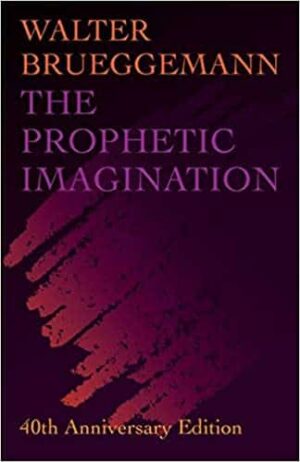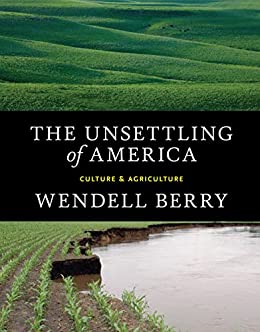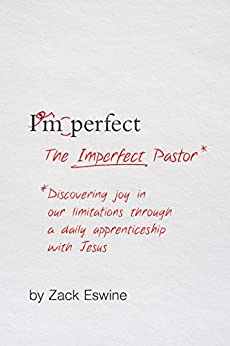
I recently asked this question on a few Facebook groups, including those for pastors. “If you are a pastor, what one or two books most shaped your vision and passion for pastoral ministry (including your pastoral practice and imagination)?” The following 50 books emerged from dozens of responses by pastors.
These books are far more than theoretical or abstract treatises on pastoral ministry. They are a call to action, a call to reflection, and a call to deeper faith. Each provides distinct insights that challenge, inspire, and illuminate, shaping how we perceive pastoral ministry and live it out. In reading and reflecting on these texts, we find a renewed vision and passion for pastoral ministry and a roadmap for transformation, both personal and communal. As we engage with these books, we grow, and in growing, we are better equipped to serve Jesus and our congregations.
I note how few women authors are on this list. I was careful not to curate the 50, so they clearly indicate the books that have inspired the pastors who responded. The books on this list are brilliant, but sadly, there’s a vast array of relevant books by women, POC, Indigenous, First Nations, and other authors that didn’t get mentioned. It’s a reminder to read the classics deeply while championing new, marginalised, and overlooked voices.
See “Nine Books by Female Pastors on Pastoral Ministry“, which is a companion post to this one. Click HERE for that post.
The 50 books that renew pastoral passion, vision, and imagination
Antoine de Saint-Exupéry. The Little Prince. Mariner, 2000.
A timeless tale of a prince journeying through the universe, uncovering life’s profound truths. Reminds pastors of the powerful wisdom inherent in simplicity and the importance of seeing with the heart, not just the eyes.
Charles Ringma. Catch the Wind. Regent College, 2003.
Meditations on capturing the work of the Holy Spirit for personal spiritual growth. Guides pastors in deepening their understanding and teaching of the Holy Spirit’s role in spiritual transformation.
Dallas Willard. The Divine Conspiracy: Rediscovering Our Hidden Life In God. HarperOne, 2009.
Unfolds the transformative power of living under God’s rule. Illuminates God’s intentions for humanity and encourages pastors to guide congregations toward a closer relationship with God.
Daniel Im. No Silver Bullets: Five Small Shifts That Will Transform Your Ministry. B&H Books, 2017.
Presents five minor adjustments that can bring about significant changes in the church. Equips pastors with strategies for facilitating discipleship and implementing effective change in their ministries.
David Watson. Discipleship. Hodder & Stoughton, 1992.
Explores the tenets of Christian discipleship, inspiring believers to follow Jesus’ model. Provides pastors with insights to foster discipleship among congregations, encouraging a deeper commitment to faith.
Derek J. Prime and Alistair Begg. On Being a Pastor: Understanding Our Calling and Work. Moodys, 2013.
A practical guide for pastors, covering the multiple facets of ministry and pastoral responsibilities. Provides insight into the pastoral vocation, encouraging pastors to understand their calling and work more deeply.
Dietrich Bonhoeffer. Life Together. HarperOne, 1978.
Examination of Christian fellowship, advocating the importance of communal living in faith. Highlights the theological importance of the Christian community, encouraging pastors to foster a sense of unity in their congregations.
Dietrich Bonhoeffer. Spiritual Care. Fortress, 1985.
Bonhoeffer outlines his philosophy of spiritual care and pastoral ministry. Offers pastors a unique perspective on pastoral care, shaped by Bonhoeffer’s own experience and theology.
Eugene H. Peterson. A Long Obedience in the Same Direction: Discipleship in an Instant Society. IVP, 2000.
Encourages the pursuit of slow, steady discipleship in a fast-paced world. Advocates for a patient, enduring approach to discipleship, challenging pastors to resist societal pressures for instant results.
Eugene H. Peterson. Five Smooth Stones for Pastoral Work. Eerdmans, 1980.
Connects Old Testament wisdom literature to the tasks of pastoral ministry. Provides pastors with a framework for ministry rooted in biblical wisdom, promoting a thoughtful approach to pastoral work.
Eugene H. Peterson. Leap Over a Wall: Earthy Spirituality for Everyday Christians. HarperOne, 1998.
Peterson offers a practical guide to spiritual growth, using stories from the life of King David. Peterson illuminates the practicality of Biblical stories, encouraging Christians to find spirituality in everyday life.
Eugene H. Peterson. The Contemplative Pastor: Returning to the Art of Spiritual Direction. Eerdmans, 1993.
Peterson encourages pastors to reclaim the art of spiritual direction in their ministry. Offers a counter-cultural approach to pastoral work, emphasizing contemplation over busyness.
Eugene H. Peterson. The Pastor: A Memoir. HarperOne, 2011.
Peterson shares his life story, including his journey into pastoral ministry. The narrative offers a deeply personal view of pastoral life, providing valuable insights for those in ministry.
Eugene H. Peterson. Under the Unpredictable Plant: An Exploration in Vocational Holiness. Eerdmans, 1994.
Peterson reflects on Jonah’s story to explore the concept of vocational holiness in ministry. The book uniquely ties Biblical narratives to the struggles of modern pastoral work, offering fresh perspectives.
Eugene H. Peterson. Working the Angles: The Shape of Pastoral Integrity. Eerdmans, 1993.
Peterson presents a compelling vision of pastoral ministry, emphasizing the importance of integrity. Peterson’s work provides a valuable framework for pastors seeking to cultivate authenticity in their ministry.
Frederick Buechner. Whistling in the Dark: An ABC Theologized. HarperOne, 1994.
Buechner explores religious and theological concepts in an A-Z format, offering unique and accessible perspectives. The book provides a fresh, simplified approach to understanding complex theological ideas.
George Mueller. Autobiography of George Muller. Whitaker House, 1996.
The autobiography documents Mueller’s life of faith and his extraordinary work in establishing orphanages. Mueller’s life story offers a profound exploration of faith in action, providing inspiration for Christian service.
Grace Ji-Sun Kim and Graham Joseph Hill. Healing Our Broken Humanity: Practices For Revitalizing the Church and Renewing the World. IVP, 2018.
Grace and I present practical steps for churches to foster healing, reconciliation, and renewal in their communities. This book offers a practical, actionable guide for churches seeking to actively address societal brokenness. (I was reluctant to add my book, but it was one of the fifty books the pastors recommended).
Henri J. M. Nouwen. In the Name of Jesus: Reflections on Christian Leadership. Crossroad, 1993.
Nouwen reflects on Christian leadership, drawing from his own experiences and the life of Jesus. Nouwen’s exploration of leadership is deeply personal and counter-cultural, emphasizing servitude over authority.
Henri J. M. Nouwen. The Wounded Healer: Ministry in Contemporary Society. Image, 2010.
Nouwen presents a vision of ministers as “wounded healers,” capable of empathy because of their own wounds. Nouwen’s concept of the “wounded healer” offers a profound reimagining of pastoral identity.
Henry Cloud and John Townsend. How People Grow: What the Bible Reveals About Personal Growth. Zondervan, 2014.
The authors explore personal growth from a Biblical perspective, linking spiritual and emotional development. This book merges Christian theology with modern psychology to provide a comprehensive guide to personal growth.
Henry Cloud. Integrity: The Courage to Meet the Demands of Reality. HarperCollins, 2009.
Cloud discusses the vital role of integrity in personal and professional life, explaining its impact on success. Cloud’s book brings a fresh perspective by linking integrity to effectively handling real-life situations.
J. D. Greear. Gaining by Losing: Why the Future Belongs to Churches That Send. Zondervan, 2015.
Greear argues for the necessity of churches to send out members for evangelism and mission. The book challenges traditional church growth models, focusing instead on sending disciples out into the world.
Jerry Cook and Stanley C. Baldwin. Love, Acceptance, and Forgiveness: Being Christian in a Non-Christian World. Bethany House, 2009.
The authors explore how Christians can embody love, acceptance, and forgiveness in a secular world. The book offers practical, biblically-based guidance for Christians striving to live out their faith authentically.
John Dickson. Humilitas: A Lost Key to Life, Love, and Leadership. Zondervan, 2018.
Dickson explores humility’s role in personal and professional life, arguing it is vital for effective leadership. Dickson’s work highlights the often-undervalued virtue of humility, particularly in leadership roles.
John Hindley. Serving without Sinking (Live Different). Good Book Company, 2013.
Hindley explores the often overwhelming aspects of Christian service, providing insights on how to serve joyfully. It addresses the common issue of burnout in Christian service, promoting sustainable and joyful service.
John Mark Comer. The Ruthless Elimination of Hurry. WaterBrook, 2019.
Comer critiques the modern, hurried life, encouraging Christians to slow down and live intentionally. It provides a much-needed Christian perspective on the issue of hurry and overwork in contemporary society.
John Stott. The Preacher’s Portrait. Eerdmans, 2017.
Stott provides a comprehensive guide to effective Christian preaching, covering its purpose, character, and role. Stott’s insight into preaching offers a nuanced understanding of the role of the preacher in the modern church.
John Wesley. The Journal of John Wesley. Penguin Classics, 1989.
This book provides a detailed look at the life, works, and thoughts of John Wesley, founder of Methodism. As a primary source, it offers invaluable insights into the life and theology of a seminal figure in Christian history.
Juan Carlos Ortiz. Disciple: A Handbook for New Believers. Creation House, 1996.
Ortiz discusses the process of discipleship, offering a blueprint for making disciples across various cultures and generations. The book uniquely addresses cross-cultural and intergenerational aspects of discipleship, enriching the understanding of Christian mission.
Keith Farmer. Going Deeper to Go Further: Enhancing Your Ministry Through Complex Narratives. Langham, 2020.
Farmer explores how understanding and navigating complex narratives can deepen ministry impact. The book integrates narrative theory into ministry, offering a fresh perspective on enhancing the effectiveness of Christian leadership.
Lee Eclov. Pastoral Graces: Reflections on the Care of Souls. Moody, 2012.
Eclov reflects on pastoral ministry, offering wisdom on caring for souls in a modern context. The book presents a compassionate, hands-on approach to pastoral care, emphasizing the importance of grace.
Mandy Smith. The Vulnerable Pastor: How Human Limitations Empower Our Ministry. IVP, 2015.
Reframes pastoral vulnerabilities as strengths, arguing that they can empower ministry. This book presents a unique argument for embracing human limitations and vulnerabilities in ministry.
Marilynne Robinson. Gilead. Picador, 2004.
This novel is a contemplative letter from an elderly preacher, John Ames, to his young son, reflecting on faith and life. Robinson’s beautiful prose and deep insights into human nature and faith have earned Gilead widespread critical acclaim and a Pulitzer Prize.
Marilynne Robinson. Lila. Farrar, Straus and Giroux, 2015.
Lila tells the story of the eponymous character, a drifter who becomes the wife of John Ames, the preacher from Gilead. This novel continues Robinson’s exploration of faith and humanity in her acclaimed Gilead series, providing a unique perspective through Lila’s outsider status.
M. Craig Barnes. The Pastor as Minor Poet: Texts and Subtexts in the Ministerial Life. Eerdmans, 2008.
Barnes proposes that pastors should be “minor poets,” perceiving the deeper truths of God’s work in ordinary lives. The book introduces a poetic metaphor for pastoral work, emphasizing the power of narrative and interpretation in ministry.
Michael Mather. Having Nothing, Possessing Everything: Finding Abundant Communities in Unexpected Places. Eerdmans, 2018.
Shares his experiences working with disadvantaged communities, highlighting their abundant resources and potential. Mather challenges prevailing narratives about poverty, shifting the focus to the resilience and resourcefulness of marginalized communities.
Ray C. Stedman. Body Life. Discover House, 1995.
Discusses the nature of the Christian church as the “Body of Christ,” emphasizing the interconnectedness of its members. Stedman provides an influential model of church life that is both relational and organic, advocating for a greater understanding of spiritual gifts.
Richard Baxter. The Reformed Pastor. CreateSpace, 2017.
Baxter provides a guide for pastoral duties and responsibilities, urging for personal piety and diligent oversight of the flock. This classic work has shaped pastoral theology for centuries, emphasising the spiritual health and integrity of the pastor.
Kent Hughes and Barbara Hughes. Liberating Ministry from the Success Syndrome. Crossway, 2016.
Challenges the modern church’s obsession with numerical growth and proposes a more biblical definition of success. The book is a helpful counter-narrative to the success-driven culture in many churches, offering a healthier vision for ministry.
Robert E. Coleman. The Master Plan of Evangelism. Revell, 2010.
Coleman outlines Christ’s method of evangelism, emphasizing discipleship and mentoring over large-scale preaching. This classic work reorients evangelism from events and programs to personal relationships and discipleship, following Jesus’ example.
Robert L. Peterson. Robert Chapman: Apostle of Love. Banner of Truth, 2010.
This biography explores the life and ministry of Robert Chapman, a pastor known for his extraordinary love and humility. Chapman’s life story provides an inspiring example of Christ-like love and selflessness, setting a high standard for Christian leadership.
Roger E. Hedlund. The Mission of the Church in the World. Cascade, 2016.
Explores the church’s global mission, examining the theological basis and practical implications of evangelism and service. Hedland offers a comprehensive study of the church’s mission, tying together biblical exegesis, missiology, and practical theology.
Stanley Hauerwas and William H. Willimon. Resident Aliens: Life in the Christian Colony. Abingdon, 2014.
The authors argue for the church as a distinct community within society, contrasting its values with those of the secular world. This work has significantly influenced Christian ethics and ecclesiology, challenging churches to maintain their distinctiveness and not conform to societal norms.
Stephen Seamands. Ministry in the Image of God: The Trinitarian Shape of Christian Service. IVP, 2005.
Seamands explores how the doctrine of the Trinity should shape Christian ministry, promoting mutual love, respect, and service. The book uniquely applies Trinitarian theology to pastoral ministry, offering a rich and often overlooked perspective on Christian service.
Thomas à Kempis. The Imitation of Christ. Penguin Classics, 2013.
This devotional classic guides readers in the spiritual discipline of imitating Christ’s virtue and humility. This book, written in the 15th century, has an enduring influence on Christian spirituality, encouraging personal piety and devotion.
Tom Wright. Surprised by Hope: Rethinking Heaven, the Resurrection, and the Mission of the Church.HarperOne, 2018.
Wright reinterprets Christian eschatology, arguing that heaven begins on earth and influences how the Church should function today. This book presents a refreshing, biblically grounded alternative to popular views of heaven and the afterlife, shaping the Church’s mission.
Walter Brueggemann. The Prophetic Imagination. Fortress, 2018.
Brueggemann explores the prophetic role in critiquing and energizing society, drawing on Old Testament prophets. This influential work reshapes our understanding of the prophetic role, emphasizing its social and political dimensions.
Wendell Berry. The Unsettling of America: Culture & Agriculture. Counterpoint, 2015.
Critiques modern industrial agriculture and its impact on communities and the land, advocating for sustainable farming. Berry’s work serves as a foundation for conversations about sustainable agriculture, spiritual vitality, and the importance of local communities.
Zack Eswine. The Imperfect Pastor: Discovering Joy in Our Limitations through a Daily Apprenticeship with Jesus. Crossway, 2015.
Eswine encourages ministers to embrace their humanity in their work, acknowledging limitations and finding strength in weakness. This book counterpoints the pressure for perfection in ministry, offering a compassionate and realistic approach to pastoral life.
See “Nine Books by Female Pastors on Pastoral Ministry“, which is a companion post to this one. Click HERE for that post.

